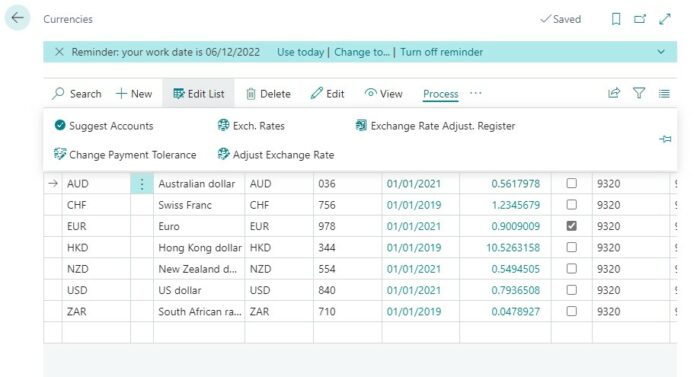20 Best Pieces Of Advice For Deciding On Currency Exchange Sites
Top 10 Tips For Currency Exchange And Rates Market TrendsAny person who is managing investments, traveling to conduct business needs to have a thorough understanding of market trends. Market trends are the fundamental patterns of prices and economic indicators over time. They are affected by many elements, such as geopolitical developments and economic data. Being aware of trends in the market could be helpful for travelers to improve their budgeting and currency conversions. Being aware of market trends is essential for companies to take strategic choices. Investors can use market trends to make educated choices about purchasing or selling assets. Here are ten crucial tips to monitor and using market trends to your advantage.
1. Keep up-to-date with economic indicators.
Economic indicators like GDP growth, unemployment rates as well as consumer confidence have a significant influence on the market. Monitor these indicators regularly to get a better understanding of the overall condition of the economy as well as potential currency movements. The Bureau of Economic Analysis, or the Federal Reserve, provide useful data you can use to interpret the market conditions.
2. Utilize Financial News Sources
Financial news sources that are reliable such as Bloomberg, Reuters, and CNBC provide up-to-date details on market trends as well as events impacting various sectors. Sign up to the market analysts' newsletters, and follow their social media accounts for the latest market information, economic forecasts, and expert opinions. These information sources can assist you in making informed choices about your travel, business and investment strategies.
3. Leverage Online Analytical Tools
TradingView and MarketWatch provide historic data and charts, as along with technical analysis that can be used to assess market trends. These tools can aid you in identifying patterns, market trends, and possible turning points. They can also assist you to make informed decisions regarding your investments or business travel plans, or managing your investments.
4. Learn about the seasonal patterns
Many markets are subject to seasonal fluctuations that impact prices and demand. Tourism can peak at certain times of the year which can impact demand for currencies and rates. Understanding these seasonal fluctuations can help you manage your travel budget better or adjust your business strategies to align with consumer behavior. It is possible to schedule your currency exchanges on the fact that periods of low-demand tend to have better exchange rates.
5. Monitor Geopolitical Changes
Political events, such as elections, trade deals, and conflicts may have an impact on the currency and market values. Be aware of global events that could influence the region you're going to, doing business in or investing in. A change in government policy in a particular country could cause currency fluctuations that can affect your budget for travel and investment returns.
6. Make use of Social Media for Real-Time Updates
Twitter and LinkedIn offer real-time updates and news on economic trends. Follow market leaders and financial analysts to gain a better understanding and perspective on the state of the market. You can also share information with relevant online communities and stay informed on the latest market trends.
7. Examine historical data to identify patterns
Historical data can offer valuable insight on how the markets have responded when faced by similar circumstances. When you study the past, you will be able to detect patterns that could lead to better predictions for future movements. This is a useful approach for those who want to find long-term trends, or businesses that are seeking pricing strategies that consider previous consumer behaviour.
8. Include Trend Analysis in Your Plan
Trend analysis is the analysis of historical data on prices to find trends. This allows for forecasts of the future. It is crucial to keep track of the trends in currencies for travelers to know when it's best to exchange currencies. Businesses can use trend analysis to design pricing strategies and marketing plans. Investors can pinpoint the best entry and exit locations to maximize their returns by using trend analysis.
9. Diversify Information Sources
A single source of data can limit your understanding of the market. Diversify your sources by consulting different financial news sources, economic reports, and online analytical tools. When you gather information from different perspectives, you can get an understanding of the current market and make more informed choices.
10. Consult Financial Advisors
You should consult a financial adviser should you have any questions regarding the current market conditions or their impact on your financial objectives. They can offer tailored guidance based on your specific situation, and assist you in developing strategies to navigate market trends efficiently. They are a valuable resource for anyone needing budgeting help, is an organization that is looking to streamline its operations or manages an investment portfolio.
Use these guidelines to track and take advantage of the latest market developments. You can manage your investments, travel, and your business more efficiently. Understanding the current market conditions can help you make financial decisions that align with personal or business objectives. Have a look at the most popular USD to AED tips for blog tips including us dollar to colombian peso, dollar to euro, rmb to usd, usd to pkr, usd mxn, 1 usd in rupees, british pound to dollar, dollar to inr, usd to colombian peso, usd to pound sterling and more.

Top 10 Tips For Currency Exchange And Rates Regulation
Understanding regulatory issues is important for anyone who does international business, travels or manages investments. The regulations vary in every country, and can affect everything from taxation and customs to restrictions on investments and exchange. Understanding these regulations is vital for ensuring compliance, avoiding fines, and maximizing the financial benefits. If you are familiar with the regulatory landscape it will allow you to make educated decisions that enhance your travel experiences, simplify your business operations and safeguard your investment. Here are the top ten important tips for managing regulations in your financial transactions.
1. Research Visa Requirements
Find out the requirements for visas and entry requirements for a new destination prior to traveling. The requirements for residency, visas, and entry permits differ between countries. Be sure to have the right documents to avoid issues with immigration. As well, you should be informed about recent changes to regulations that may affect your capacity and motivation to travel. This is due to the fact that many countries have changed their policies due to global issues.
2. Learn about Customs Regulations
Learn about the export and import restrictions of the country you are aiming to visit. Each country has rules on the types of goods that can be brought into the country without having to pay duties or taxes. If you violate these regulations, it could result in fines or the confiscation of goods, or legal action. Remember that many countries require that you declare any cash that exceeds the amount of.
3. Foreign Currency Regulations - Be Watchful
Different countries have laws governing international money transfers and currency exchange. You may need to check the rules of the country that you're visiting or with whom you do business because there may be restrictions on how much money you can exchange or transfer. Knowing the rules can help you avoid penalty fees and ensure compliance with local laws.
4. Consult Local Legal Experts
Talk to local experts to get a better understanding of the regulatory landscape. They can provide useful information on local laws, the requirements for compliance, as well as the possible risks that come with business. This guidance can assist you in navigating complex regulations and avoid costly errors.
5. Be aware of tax obligations
Tax laws differ widely across countries and can affect both business and individuals. You should research the taxes you will be required to pay when you travel abroad or conducting business, like tax on income, VAT and withholding taxes on payments. Tax treaties may also affect your tax liability.
6. Compliance with Trade Regulations
If you own an industry that involves imports and exporting, then ensure that you follow the trade regulations. This will include tariffs and import quotas. A failure to adhere to the regulations could result in penalties, delays, and even delayed shipments. Talk to an expert in trade compliance in order to know the specific regulations applicable to your particular business and your product.
7. Be aware of changes to regulatory environments.
- Regulatory environments are subject to rapid change due to economic, political or other social forces. Be aware of any changes that could impact your travel, business, or investments by subscribing to relevant news sources, industry newsletters, or regulatory updates. This proactive strategy will keep you in compliance and keep up-to-date with any changes to laws.
8. Investment Regulations and Investment Regulations
Understanding the regulatory landscape of the country you intend to invest is crucial for investors. Foreign investment regulations vary from one jurisdiction to another, and contain restrictions on ownership percentages, as well as regulations regarding reporting and reporting for investment vehicles. It is essential to study the regulations to ensure your investments are compliant and that you avoid potential penalty.
9. Compliance Software and Tools
Consider using compliance tools and software to help you and your business navigate the requirements of regulatory compliance. These platforms will help you monitor changes to regulations and organize the documentation you have. They also help ensure that you are in compliance with the industry's standards. Investing in tools that assist you in complying with rules can help streamline your operations and decrease the risk of not being in compliance.
10. Local Business Networks - Engage your Local Business Networks
- Networking within local organizations and business groups can provide you a valuable perspective on regulatory issues. Joining chambers of business trade associations, trade associations or other industry associations within your region can allow you connect with experts that have experience navigating the regulatory framework. These connections can offer assistance and assistance in ensuring compliance with local laws.
You can better navigate the challenges in business travel, monitoring investments and travelling by following these detailed guidelines for regulatory considerations. Knowing the regulatory landscape can help you make better decisions that align with your objectives. This will improve your overall experience and your financial plan. Knowing the regulatory landscape will allow you to avoid potential pitfalls, whether you're traveling to another country for pleasure or expanding your business internationally, or making investments across borders. View the recommended forint tips for website tips including baht to us dollar, usd to cop, us dollar to japanese yen, euro to dollar, usd to japanese yen, usd to aud, aed to usd, us dollar to colombian peso, usd to rmb, usd to colombian peso and more.
